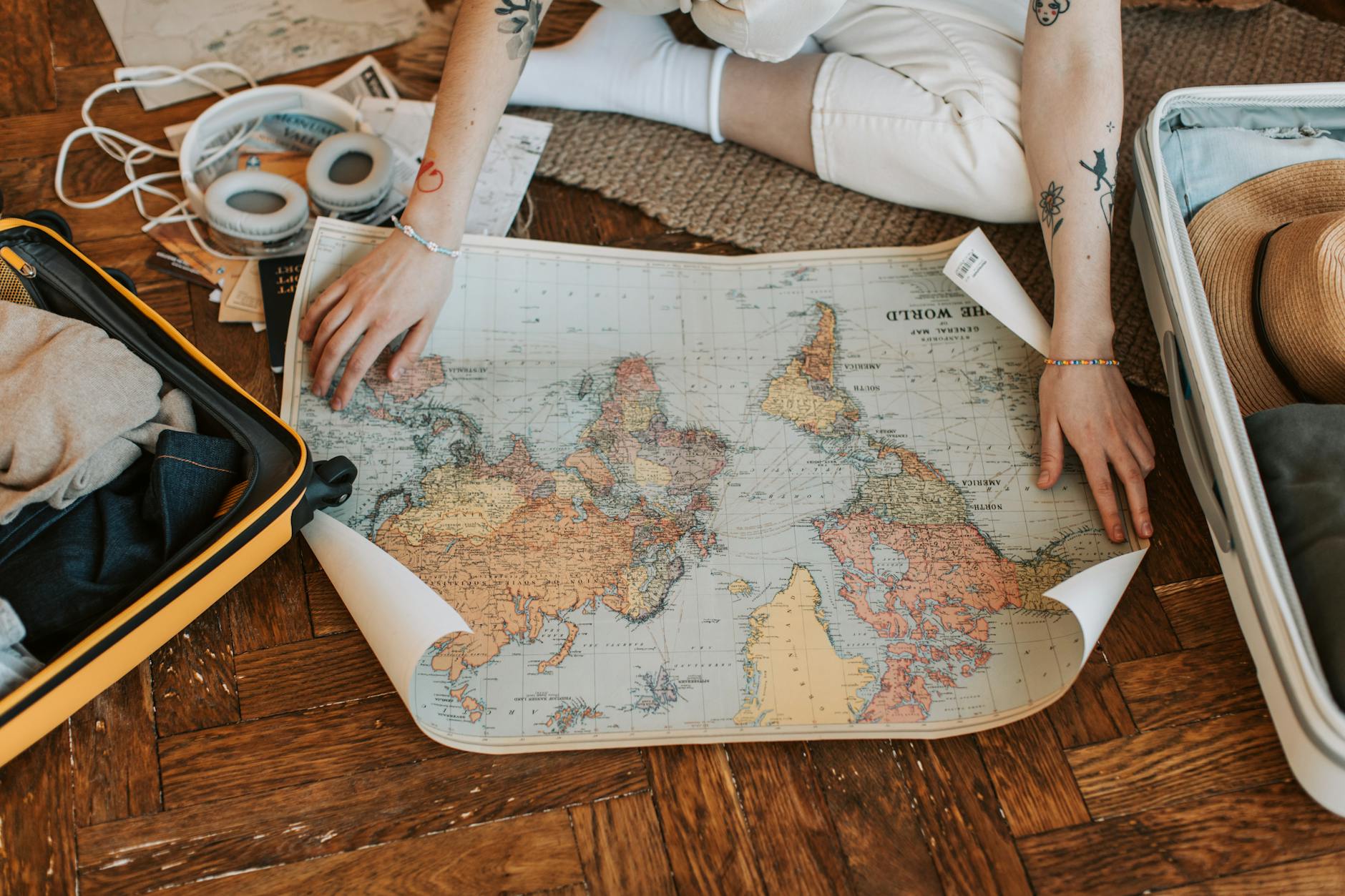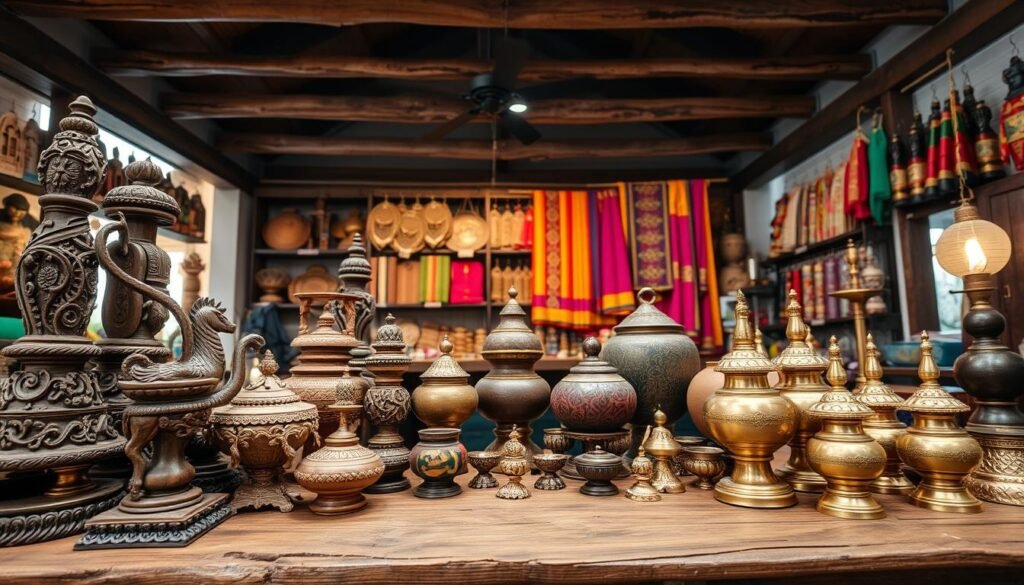
Estimate Your Travel Expenses Easily with a Travel Cost Calculator
Have you ever found yourself daydreaming about your next adventure, only to be jolted back to reality by the daunting question: “How do I Calculate Your Travel Cost?” 🤔 You’re not alone. Many travelers struggle with accurately estimating their expenses, often leading to unexpected budget blowouts or missed opportunities.
But what if we told you there’s a secret formula to calculating your travel costs like a pro? 🧮✈️ Imagine being able to plan your dream vacation with confidence, knowing exactly how much you’ll need to save and where every dollar will go. From understanding the hidden components of travel costs to leveraging cutting-edge technology for precise calculations, we’re about to unlock the strategies that savvy globetrotters use to master their travel budgets.
In this blog post, we’ll dive deep into the art of travel cost calculation, covering everything from researching and comparing prices to tailoring your budget for different types of trips. Get ready to transform your travel planning game and embark on your next adventure with the peace of mind that comes from knowing you’ve got your finances under control. Let’s explore the six key steps to becoming a travel budget pro!
Understanding the Components of Travel Costs
A. Transportation expenses: flights, trains, and local transit
When calculating your travel costs, transportation is often one of the largest expenses. Here’s a breakdown of common transportation costs:
| Mode of Transport | Pros | Cons |
|---|---|---|
| Flights | Fast, convenient for long distances | Can be expensive, airport transfers needed |
| Trains | Scenic routes, city-center arrivals | Limited routes, can be slow |
| Local Transit | Affordable, authentic experience | Time-consuming, language barriers |
To estimate your transportation budget:
- Research flight prices using comparison websites
- Check train fares and routes for your destination
- Look up local transit costs (e.g., subway passes, bus fares)
- Factor in airport transfers or taxis if necessary
B. Accommodation costs: hotels, hostels, and vacation rentals
Accommodation is another significant part of your travel budget. Options include:
- Hotels: Convenient but often pricier
- Hostels: Budget-friendly, great for meeting people
- Vacation rentals: Cost-effective for longer stays or groups
- Read – 7 Powerful Strategies to Rank Higher & Attract Clients
To calculate accommodation costs:
- Determine the number of nights you’ll be staying
- Compare prices across different booking platforms
- Consider location and amenities that fit your needs
- Factor in any additional fees (e.g., resort fees, cleaning charges)
C. Food and dining expenses
Your food budget can vary greatly depending on your dining preferences. Consider:
- Grocery shopping for self-catering
- Street food and local markets for authentic, budget-friendly options
- Restaurants for special meals or local cuisine experiences
To estimate food costs:
- Research average meal prices at your destination
- Plan for a mix of dining out and self-catering
- Account for any dietary restrictions or preferences
D. Activities and entertainment budget
Don’t forget to allocate funds for sightseeing and experiences. This may include:
- Museum admissions
- Guided tours
- Adventure activities
- Cultural performances
To budget for activities:
- List must-see attractions and their costs
- Look for free activities or discounted city passes
- Set aside a flexible fund for spontaneous experiences
E. Hidden fees and miscellaneous costs
Be prepared for unexpected expenses by factoring in:
- Travel insurance
- Visa fees
- Currency exchange rates and fees
- Souvenirs and shopping
- Emergency fund for unforeseen circumstances
By understanding these components, you’ll be better equipped to create a comprehensive travel budget. Next, we’ll explore how to research and compare prices effectively to ensure you’re getting the best deals for your trip.
Researching and Comparing Prices
Utilizing travel comparison websites
When it comes to researching and comparing prices for your travels, travel comparison websites are invaluable tools. These platforms aggregate information from multiple sources, allowing you to compare prices for flights, hotels, car rentals, and more in one place.
Here’s a quick comparison of some popular travel comparison websites:
| Website | Flights | Hotels | Car Rentals | Package Deals |
|---|---|---|---|---|
| Kayak | ✓ | ✓ | ✓ | ✓ |
| Skyscanner | ✓ | ✓ | ✓ | ✓ |
| Momondo | ✓ | ✓ | ✓ | ✓ |
| Google Flights | ✓ | ✗ | ✗ | ✗ |
To make the most of these websites:
- Set up price alerts for your desired dates and destinations
- Use flexible date search to find the cheapest travel days
- Compare prices across multiple sites for the best deals
Leveraging airline and hotel rewards programs
Rewards programs can significantly reduce your travel costs. Here are some tips to maximize your benefits:
- Sign up for loyalty programs with airlines and hotel chains you frequently use
- Consider travel credit cards that offer points or miles on purchases
- Accumulate points through everyday spending and bonus offers
- Use your points strategically for flights, upgrades, or hotel stays
Timing your bookings for the best deals
The timing of your bookings can have a substantial impact on your travel costs. Generally:
- Book flights 6-8 weeks in advance for domestic trips, and 3-4 months ahead for international travel
- For hotels, book 2-3 months in advance for the best rates
- Consider traveling during shoulder seasons for better prices and fewer crowds
By combining these strategies, you’ll be well on your way to finding the best prices for your trip. Next, we’ll explore how to craft a realistic travel budget based on your research.
Crafting a Realistic Travel Budget
Estimating daily expenses
When crafting a realistic travel budget, estimating daily expenses is crucial. Start by categorizing your costs:
- Accommodation
- Food and drinks
- Transportation
- Activities and entertainment
- Miscellaneous (souvenirs, toiletries, etc.)
Research average costs for each category in your destination. Use travel forums, guidebooks, and official tourism websites for accurate information. Create a daily budget table like this:
| Expense Category | Low Budget | Mid-Range | Luxury |
|---|---|---|---|
| Accommodation | $30 | $80 | $200 |
| Food & Drinks | $20 | $40 | $100 |
| Transportation | $10 | $25 | $50 |
| Activities | $15 | $40 | $100 |
| Miscellaneous | $10 | $20 | $50 |
| Total per day | $85 | $205 | $500 |
Adjust these figures based on your travel style and destination specifics.
Factoring in exchange rates and foreign transaction fees
When traveling internationally, exchange rates can significantly impact your budget. Use a reliable currency converter app to stay updated on current rates. Consider the following:
- Research exchange rates before your trip
- Calculate costs in both local currency and your home currency
- Factor in potential currency fluctuations
Don’t forget about foreign transaction fees. Many banks charge 1-3% on international purchases. To minimize these costs:
- Use credit cards with no foreign transaction fees
- Withdraw larger amounts less frequently from ATMs
- Consider getting a travel-friendly debit card
Building a buffer for unexpected costs
Now that we’ve covered the basics, it’s essential to prepare for the unexpected. Set aside 10-20% of your total budget as a buffer for unforeseen expenses such as:
- Emergency medical care
- Lost or stolen items
- Transportation delays or cancellations
- Spontaneous activities or purchases
This buffer ensures you’re prepared for surprises without derailing your entire budget.
Adjusting for destination-specific factors
Maximizing Savings with Smart Travel Hacks
Opting for off-season travel
Traveling during off-peak seasons can significantly reduce your overall travel costs. Here’s a comparison of peak vs. off-peak travel:
| Aspect | Peak Season | Off-Season |
|---|---|---|
| Prices | Higher | Lower |
| Crowds | More crowded | Less crowded |
| Weather | Generally better | May be less ideal |
| Availability | Limited | More options |
• Book flights and accommodations 2-3 months in advance for best off-season deals
• Research destination-specific off-seasons to find the best balance of good weather and low prices
• Consider shoulder seasons for a mix of decent weather and reduced costs
Exploring alternative accommodations
• Stay in hostels or guesthouses instead of hotels
• Use home-sharing platforms like Airbnb or VRBO for local experiences and potential cost savings
• Consider house-sitting or home exchange programs for free accommodation
Using public transportation and walking
• Utilize local buses, trains, and metros for cost-effective city exploration
• Download transportation apps for easy navigation and ticket purchases
• Plan walking tours to discover hidden gems and save on transportation costs
Taking advantage of free activities and attractions
• Research free museum days and city tours
• Explore public parks, beaches, and nature trails
• Attend local festivals and events that don’t require admission fees
Cooking meals instead of dining out
• Book accommodations with kitchen facilities
• Visit local markets for fresh, affordable ingredients
• Pack picnic lunches for day trips and excursions
By implementing these smart travel hacks, you can significantly reduce your travel expenses without compromising on experiences. To further enhance your budgeting, consider using tools like the Travel Cost Calculator offered by Troper Tours. This tool can help you estimate and manage your travel expenses more accurately, ensuring a well-planned and enjoyable journey.
Leveraging Technology for Accurate Cost Calculations
Travel budget apps and their features
In the digital age, leveraging technology for accurate travel cost calculations has never been easier. Travel budget apps offer a convenient way to plan and track your expenses on the go. Here are some popular apps and their key features:
| App Name | Key Features |
|---|---|
| TripAdvisor | Price comparison, booking integration, user reviews |
| TravelSpend | Offline tracking, multi-currency support, expense categorization |
| Trail Wallet | Customizable categories, daily budget alerts, visual reports |
| Splitwise | Group expense tracking, bill splitting, debt settlement |
These apps not only help you calculate costs but also provide valuable insights into your spending patterns, making it easier to stick to your budget.
Spreadsheet templates for detailed cost tracking
For those who prefer a more hands-on approach, spreadsheet templates offer unparalleled flexibility in tracking travel costs. Here’s how to create an effective spreadsheet:
- List all expense categories (transportation, accommodation, food, activities)
- Create columns for estimated and actual costs
- Include a running total to track overall spending
- Add formulas for automatic currency conversion
- Use conditional formatting to highlight over-budget areas
Many pre-made templates are available online, or you can customize your own to suit your specific travel needs.
Currency conversion tools for real-time calculations
When traveling internationally, accurate currency conversion is crucial for maintaining your budget. Real-time conversion tools ensure you’re always aware of your true spending. Some reliable options include:
- XE Currency: Offers live exchange rates and supports over 180 currencies
- Google Currency Converter: Simple, built into Google search for quick conversions
- Wise (formerly TransferWise): Provides mid-market rates and a multi-currency account
These tools can be integrated into your travel planning process, allowing you to make informed decisions about your expenses in various destinations.
Tailoring Your Budget to Different Types of Trips
Backpacking on a shoestring
When it comes to backpacking on a shoestring, careful planning and resourcefulness are key. Here’s how to make the most of your limited budget:
- Prioritize low-cost accommodations: hostels, camping, or couchsurfing
- Cook your own meals and opt for local street food
- Use public transportation or hitchhiking instead of taxis
- Take advantage of free walking tours and attractions
Luxury travel without breaking the bank
Indulging in luxury doesn’t always mean emptying your wallet. Consider these strategies:
- Travel during off-peak seasons for discounted rates
- Use credit card rewards for upgrades and perks
- Book luxury accommodations through deal sites or last-minute offers
- Mix high-end experiences with budget-friendly activities
| Luxury Element | Budget-Friendly Alternative |
|---|---|
| 5-star hotel | Boutique hotel or Airbnb Plus |
| Fine dining | Local gourmet experiences |
| Private tours | Small group guided tours |
Family vacations: balancing fun and finances
Family trips require a delicate balance between enjoyment and cost-effectiveness:
- Look for family-friendly accommodations with kitchenettes
- Take advantage of kids-eat-free promotions and family packages
- Plan a mix of paid attractions and free outdoor activities
- Consider vacation rentals for extended stays to save on accommodation and food costs
Business travel: separating personal and professional expenses
For business travelers, it’s crucial to distinguish between work-related and personal expenses:
- Use separate credit cards for business and personal purchases
- Keep detailed records of all expenses, including receipts
- Understand your company’s travel policy and reimbursement procedures
- Look for loyalty programs that offer both business and personal benefits
By tailoring your budget to these different types of trips, you can ensure a more accurate cost calculation and a more enjoyable travel experience. Remember, the key to successful travel budgeting is flexibility and thorough research, regardless of your travel style or purpose.

Calculating your travel costs like a pro involves a comprehensive approach that covers all aspects of your journey. By understanding the various components of travel expenses, researching prices, and crafting a realistic budget, you can gain better control over your finances while planning your next adventure. Utilizing smart travel hacks and leveraging technology further enhances your ability to accurately estimate and manage your travel expenses.
Remember, the key to successful travel budgeting lies in tailoring your approach to fit the specific type of trip you’re planning. Whether it’s a luxurious getaway or a budget-friendly backpacking expedition, mastering the art of travel cost calculation will ensure you make the most of your resources and create unforgettable experiences without breaking the bank. So, start applying these strategies today and unlock the secret formula to becoming a travel budgeting pro! Check out our Travel Cost Calculator to easily estimate your trip expenses.










